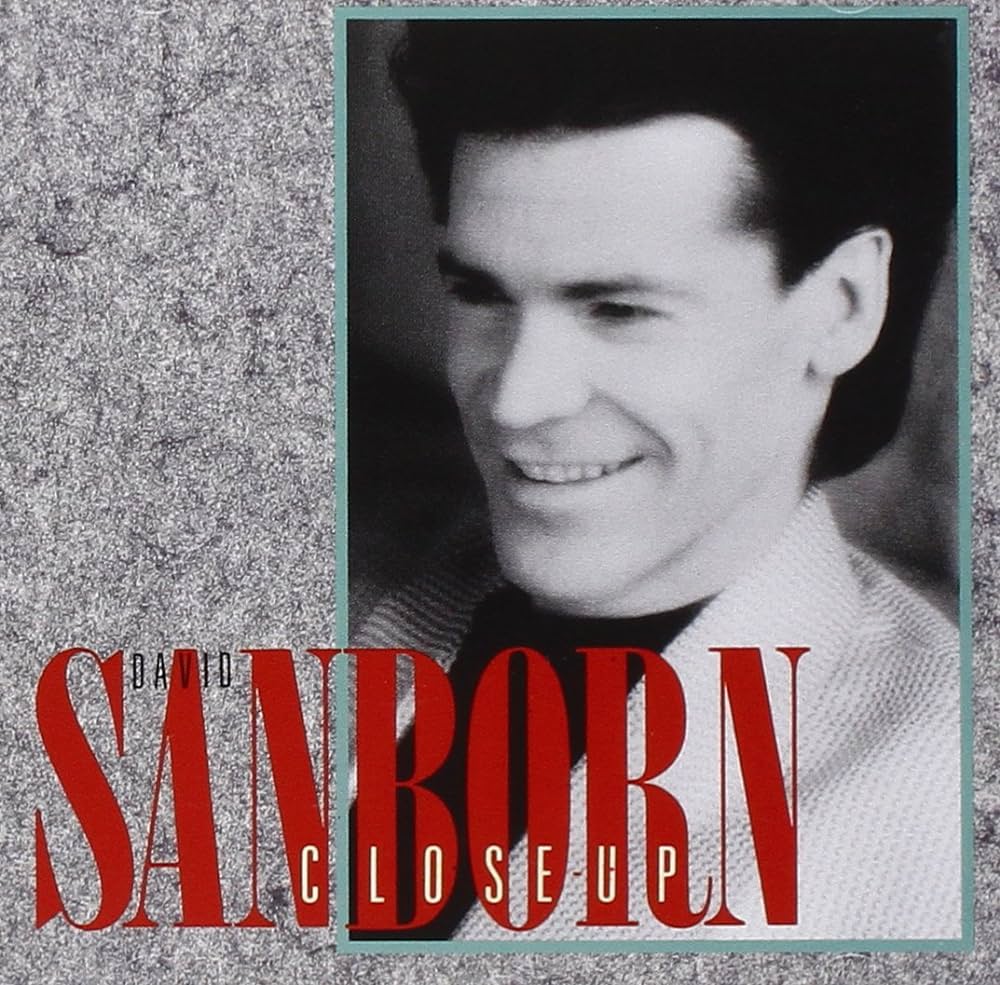Night Music
Farewell to a supremely talented sax player

Sad news today for music fans: Saxophonist David Sanborn, whose signature tone graced a long list of pop and rock records while fueling his prolific recording career as a solo artist, has succumbed to prostate cancer at the age of 78.
If you've been reading my writing for awhile, you know I have a somewhat complicated relationship with Sanborn's music, largely owing to the fact that I came of age as a music consumer during the arguable nadir of his creative journey. During the mid-to-late '80s, Sanborn settled into cruise control on his own records; while his music was always good at evoking a mood, it wasn't always strictly interesting during these years. If you pointed a gun at my head and told me to name one single record that captured the slickly proficient yet artistically complacent adult-oriented music of the era in a nutshell, I think I'd probably pick Sanborn's 1988 LP Close-Up. I mean, just look at that cover:

But Sanborn was always more restless than his worst critics gave him credit for, and in the early '90s, he left his longtime label home at Warner Bros. and quickly reinvented himself at Elektra. His largely acoustic 1991 album Another Hand saw him working alongside an eclectic cast of characters that included Bill Frisell, Marc Ribot, Syd Straw, Charlie Haden, NRBQ's Terry Adams and Al Anderson, and many others; the following year, he flipped the script for Upfront, a more uptempo affair. He'd go on to do a whole bunch of other stuff over the course of his career, but you get the point — he'd never again return to the type of machine-assisted smooth jazz that would forever define him in the eyes and ears of many.
My first real experience with Sanborn's stuff came courtesy of "Since I Fell for You," the standard he covered with Bob James for their 1986 Double Vision LP. Featuring Al Jarreau on vocals, the song was featured on the Moonlighting soundtrack, and for good reason — it's a transcendent performance of a classic piece of music, and even though Jarreau's vocals are flawless, it's really Sanborn's solo (which erupts after Jarreau snaps "play this!") that serves as the highlight.
It was probably that song, and that song only, that made me want to listen to Another Hand. Despite not knowing much of Sanborn's catalog, I knew enough to know a lot of people thought he was a jiveass, but Another Hand is a casual middle finger to all that; with Frisell as his co-pilot, he shook off all the '80s shellac and indulged his jazzier side about as freely as he ever had or would. Come for his cover of the Velvet Underground's "Jesus"; stay for the 12-minute medley that serves as the album's penultimate track.
I played the shit out of Another Hand during the summer of 1991, and when Upfront arrived the following year, I devoured it eagerly. It's arguably less interesting from a musical standpoint — it's certainly less surprising — but there's a lot of pleasure to be derived from listening to Sanborn lay out on songs he probably could have played in his sleep, like his cover of "Soul Serenade" or the album's deeply fun version of "Bang Bang."
After Upfront, my mileage varied with a lot of Sanborn's studio sets; from my relatively distant vantage point, he seemed to slowly drift between albums that covered songs he loved (1995's Pearls, 2008's Here and Gone) and ones that let him stretch. The latter list includes 2013's Quartette Humaine, which reunited him with James and provided me the honor of interviewing him for Popdose. You can read our conversation at this link.
In more recent years, Sanborn branched out further with a short series of live performances that were recorded with special guests during the pandemic, followed by a podcast — both of which served as spiritual successors to Night Music, the stellar late night show he briefly hosted during the '80s. If we lived in a just world, Sanborn would have been allowed to continue booking whoever he damn well pleased and playing alongside them while the cameras rolled; if you've never had the pleasure of watching Night Music clips, well, stop what you're doing and enjoy this playlist.
Despite having written all this, there really isn't anything I can say about David Sanborn that hasn't already been said. As a nominal jazz artist, he was doomed to a certain amount of establishment scorn by virtue of his commercial success, but his brilliant playing helped shape an entire era of sax solos for pop and rock artists — and if he was never Charlie Parker, well, neither was he really trying to be. As square as his records could be, he epitomized cool — particularly the flavor of cool that comes with perpetually following your muse as its own reward and not bothering to seek validation from anyone who'd presume to grant or withhold it. If the hour were earlier, I'd keep blabbering; as it is, I think I'll just end up listening to a lot of David Sanborn tomorrow. Maybe you will too.
